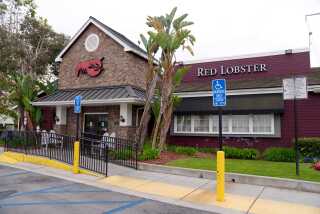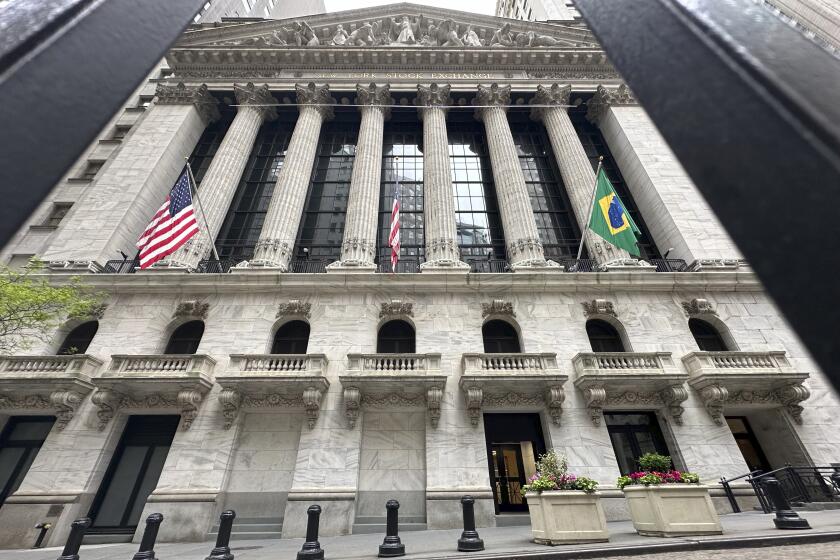Matching Colon Tests to Patients, Not Costs
The walk-in clinic I visited for a cold that had migrated to my chest ran some routine blood tests. Results were normal. Since this visit served as kind of a physical, I asked about a fecal occult blood test to check for colon cancer.
“No,” the doctor said, “that’s not what you want. By the time a tumor has already grown through the blood vessels and bleeds, it’s untreatable. What you need,” he said, “is a colonoscopy. You have good insurance. Go upstairs and see Dr. O. He does them.”
The doctor was engaging in a variant of the classic bait-and-switch, trying to move me from a low-priced test that costs less than $10 to the top-of-the-line model priced at $1,000 or more. Like so many irksome salespeople, he disparaged the competition and skirted the downsides of his product. Had the doctor sized me up as a patient or as a customer available to boost the bottom line of his practice? Was the marketplace selling me health care the way a car salesman sells cars?
That I had good insurance was beside the point. Did I need a full-blown examination of every nook and cranny of my colon, or would a simpler test, such as the fecal occult screen or a sigmoidoscopy, in which a flexible, lighted tube is used to examine one part of the colon, do as well? Was Dr. O qualified to do the test, a highly invasive procedure not without risk?
A neighbor of mine, Jim, had a colonoscopy a few years ago, and the doctor perforated his colon. He needed emergency surgery, and for several weeks had to wear an ostomy bag to collect his wastes. He required a second surgery to sew his intestines back in place. What a terrible summer he had simply because his doctor had made a mistake. I know that doctors make errors--more than the public wants to believe. Between 10 and 30 people out of 10,000 who have a colonoscopy will end up with a perforated colon, or bleeding. One will die.
I turned to Eric Schneider, an internist who teaches at the Harvard School of Public Health and who is doing research on colorectal cancer screening. I asked Schneider about the doctor’s claim that fecal occult screening was not the best way to detect the disease. “A flimsy scenario,” he replied.
The evidence is best for the fecal occult blood screen, Schneider said. Three large, randomized trials (the gold standard for medical research, where chance determines which patients get the test or a placebo) have shown conclusively that death rates are lower among people who are screened. In fact, of the four screening tests for colon cancer--including barium enema, which allows radiologists to see the entire colon--only the fecal occult blood test, followed by colonoscopy if the test is positive, reduces deaths from the disease.
Despite Katie Couric’s crusade and pushy doctors who stand to make a bundle from doing colonoscopies, there is still no direct conclusive evidence that a colonoscopy screening saves lives. What it does, Schneider said, is allow more precision and accuracy in detecting tumors everywhere in the colon. The barium enema is not as accurate, the sigmoidoscopy shows only one part of the colon, and the fecal occult blood test will miss tumors that don’t bleed. So why not have a colonoscopy and be absolutely sure?
Well, colonoscopy is a nasty affair. It’s uncomfortable, requires sedation and you must prepare your bowel by limiting food and drink for at least 12 hours before the test. Some patients, after having one test, refuse to repeat the experience, Schneider says. Ultimately, he said, it comes down to risk versus benefit, as do so many things in medicine.
One study found that during a 15-year period, about 30% of people who were screened using the fecal blood test eventually needed a colonoscopy, which can also be used to snip off polyps, cancerous or otherwise. Seventy percent, though, did not. The death and complication rate could erase any gains from using colonoscopy for the entire population and especially for those at low risk.
My dilemma mirrors a larger public health conflict: Do we devise a rational screening strategy for the entire population based on risk, or do we pursue a course to eradicate every cancer at all costs? Money spent inspecting the colons of those 70% whose fecal occult blood test shows no bleeding will cost billions, put people at risk of complications or death and yield very little benefit.
And the money spent on those needless screenings could go toward other crucial health needs: medical coverage for the uninsured or prescription drugs for all of the nation’s elderly.
The reason to get a test does not rest on the kind of insurance you have, but on what is best for you depending on your age and risk factors. More than 60% of Americans receive no screening for colon cancer--an appalling statistic. A recent editorial in the New England Journal of Medicine argued that the quandary over colon cancer screening could be solved for now by encouraging people to have whatever test they are most comfortable with. For some like me, that will mean the fecal occult blood test along with a sigmoidoscopy. Others may choose a colonoscopy. Ten years from now, when my risk is greater, I might do the same.
For those who do choose colonoscopy, finding a competent, experienced doctor may be difficult. As the New England Journal pointed out, any test can be botched if the person doing it is incompetent--and suggested that demand for the test may be outstripping the supply of competent doctors. That brought me to the second question I had when the doctor gave me the hard sell. How do I find someone qualified to maneuver a colonoscope through my body?
The marketplace, which shines at pushing medical technology, gives little or no guidance here. We do know that in the medical business, practice makes perfect--or at least closer to it. A doctor who performs 100 colonoscopies a month is probably more skilled than one who does 20.
Science, however, has yet to tell us the magic number--the point at which a doctor’s dearth of experience should be reason for alarm. And doctors have resisted most efforts to have their surgical scorecards put on display for public viewing. Lack of such information makes it hard for us to behave as rational consumers in the medical marketplace. And it leaves us vulnerable to unscrupulous practitioners who may be peddling more medical care than we need--sometimes putting our health at risk.
*
Trudy Lieberman is the author of “Consumer Reports Complete Guide to Health Services for Seniors” (Three Rivers Press, 2000). She can be reached at tlieber@ksg.harvard.edu. Health Matters runs the third Monday of the month.






